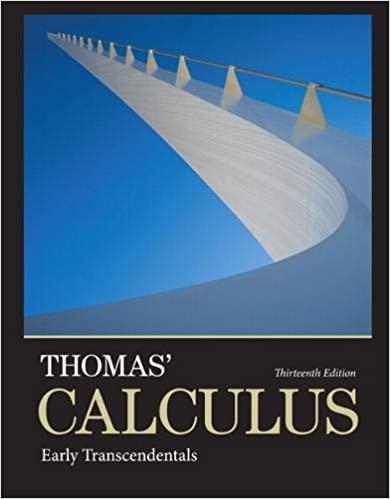Which of the following statements are true, and which are false? If true, say why; if false,
Question:
Which of the following statements are true, and which are false? If true, say why; if false, give a counterexample (that is, an example confirming the falsehood).
a. If limx→c ƒ(x) exists but limx→c g(x) does not exist, then limx→c(ƒ(x) + g(x)) does not exist.
b. If neither limx→c ƒ(x) nor limx→c g(x) exists, then limx→c (ƒ(x) + g(x)) does not exist.
c. If ƒ is continuous at x, then so is |ƒ |.
d. If |ƒ| is continuous at c, then so is ƒ.
Fantastic news! We've Found the answer you've been seeking!
Step by Step Answer:
Related Book For 

Thomas Calculus Early Transcendentals
ISBN: 9780321884077
13th Edition
Authors: Joel R Hass, Christopher E Heil, Maurice D Weir
Question Posted:





